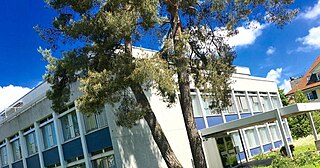Adventism is a branch of Protestant Christianity that believes in the imminent Second Coming of Jesus Christ. It originated in the 1830s in the United States during the Second Great Awakening when Baptist preacher William Miller first publicly shared his belief that the Second Coming would occur at some point between 1843 and 1844. His followers became known as Millerites. After Miller's prophecies failed, the Millerite movement split up and was continued by a number of groups that held different doctrines from one another. These groups, stemming from a common Millerite ancestor, collectively became known as the Adventist movement.

The Seventh-day Adventist Church (SDA) is an Adventist Protestant Christian denomination which is distinguished by its observance of Saturday, the seventh day of the week in the Christian (Gregorian) and the Hebrew calendar, as the Sabbath, its emphasis on the imminent Second Coming (advent) of Jesus Christ, and its annihilationist soteriology. The denomination grew out of the Millerite movement in the United States during the mid-19th century and it was formally established in 1863. Among its co-founders was Ellen G. White, whose extensive writings are still held in high regard by the church.

The Seventh Day Adventist Reform Movement is a Protestant Christian denomination in the Sabbatarian Adventist movement that formed from a schism in the European Seventh-day Adventist Church during World War I over the position its European church leaders took on Sabbath observance and on committing Adventists to the bearing of arms in military service for Imperial Germany in World War I.

The Inter-European Division (EUD) of Seventh-day Adventists is a sub-entity of the General Conference of Seventh-day Adventists, which oversees the Church's work in a portions of Europe, which include the nations of Andorra, Austria, Belgium, the Czech Republic, France, Germany, Gibraltar, Italy, Liechtenstein, Luxembourg, Malta, Monaco, Portugal, Romania, San Marino, Slovakia, Spain and Switzerland. Its headquarters is in Bern, Switzerland.
Eight per thousand is an Italian law under which Italian taxpayers devolve a compulsory 8 ‰ = 0.8% from their annual income tax return to an organised religion recognised by Italy or, alternatively, to a state-run social assistance scheme.

The Seventh-day Adventist Church had its roots in the Millerite movement of the 1830s to the 1840s, during the period of the Second Great Awakening, and was officially founded in 1863. Prominent figures in the early church included Hiram Edson, Ellen G. White, her husband James Springer White, Joseph Bates, and J. N. Andrews. Over the ensuing decades the church expanded from its original base in New England to become an international organization. Significant developments such the reviews initiated by evangelicals Donald Barnhouse and Walter Martin, in the 20th century led to its recognition as a Christian denomination.

Buddhism in Italy is the third most spread religion, next to Christianity and Islam. According to Caritas Italiana, in the country there are 160,000 Buddhists, that is to say the 0.3% of the total population.
The theology of the Seventh-day Adventist Church resembles that of Protestant Christianity, combining elements from Lutheran, Wesleyan-Arminian, and Anabaptist branches of Protestantism. Adventists believe in the infallibility of Scripture and teach that salvation comes from grace through faith in Jesus Christ. The 28 fundamental beliefs constitute the church's official doctrinal position.

Religion in Italy has been historically characterized by the dominance of Catholicism since the Great Schism. According to a 2023 Ipsos survey, 61% of the country's residents are Catholic, 4% are Protestants, 3% other Christians, 28% are irreligious, 2% prefer not to say, 1% are Muslims, and 1% adhere to other religions. Italy's Catholic patron saints are Francis of Assisi and Catherine of Siena.
The Italian Hindu Union is an association representing Hinduism in Italy.
The Federation of Evangelical Churches in Italy is an ecumenical Protestant body in Italy.
This article describes the relationship between the Seventh-day Adventist Church and other Christian denominations and movements, and other religions. Adventists resist the movement which advocates their full ecumenical integration into other churches, because they believe that such a transition would force them to renounce their foundational beliefs and endanger the distinctiveness of their religious message. According to one church document,
Generation of Youth for Christ, formerly the General Youth Conference - not to be mistaken for Adventist Young Professionals (AYP), is an annual conference and expression of Adventist theology and 28 Fundamental Beliefs, which organizes and coordinates Bible studies, online sermons, regional youth conferences, mission trips, global networking opportunities for young people, week of prayers and youth camp meetings. It began with a small group of Korean students studying their Bibles together all night. It developed through middle-of-the-night text-messaging between two university students, one in Massachusetts, the other in California. They decided to call people together for a small conference in the woods of California. At that first conference, held in 2002, 200 people were invited; 400 attended. Since then, the popularity of the conventions has grown, and even the President of the Seventh-day Adventist Church, Ted N. C. Wilson has attended and praise the conventions. It has sermons that have been published in hardcover and the 2010 convention registered 5,100 participants.
The International Missionary Societyof Seventh-Day Adventist Church Reform Movement (IMSSDARM) is an independent Protestant Christian

Protestantism in Italy comprises a minority of the country's religious population.

The Seventh-day Adventist Church in Canada (SDACC) is a constituent entity of the North American Division of Seventh-day Adventists (SDA). It's territory consists of all Canada and the French possessions of Saint Pierre and Miquelon. As of 2022, the SDACC consisted of seven local conferences, 388 churches, and 74,191 members.
The Assemblies of God in Italy, whose full name is Evangelical Christian Churches Assemblies of God in Italy, is a fellowship of evangelical and Pentecostal churches which functions as the Italian branch of the International Fellowship of Christian Assemblies, while being in communion with the World Assemblies of God Fellowship as well.

The Italian Buddhist Union is an association representing Buddhism in Italy.
The Apostolic Church in Italy is an Italian Protestant denomination in the Pentecostal-evangelical tradition founded in 1927, which is part of the worldwide fellowship of the Apostolic Church and the Federation of Evangelical Churches in Italy, an ecumenical body representing Italian Protestants. Its headquarter is in Grosseto.









